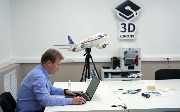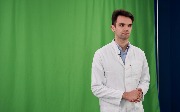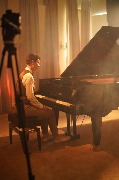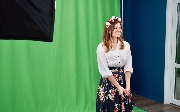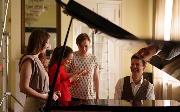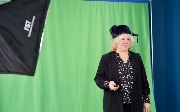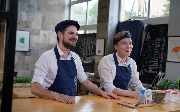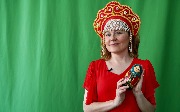International Aerospace Summer School has started at MAI
The International Aerospace Summer School 2020 of Moscow Aviation Institute has started online on July 20 – a nine-day educational program for students from China including academic and cultural and ethnographic modules. This year, participants will have a rich program, the topic of which is “Additive Technologies in Aerospace Industry”. More than 150 applications were submitted for the program from four leading Chinese technical universities: Central South University, Zheijiang University, Beihang University (Beijing University of Aeronautics and Astronautics), Nanjing University of Aeronautics and Astronautics.
“The annual short-term program of supplementary education for foreign students for the first time was held at MAI in 2018 and implied a face-to-face format. This year, due to the continuing threat of the coronavirus infection spread, the School will be held in the online format on the LMS platform for distance learning”, says Alexander Khvan, Director of Summer School.
Popularization of technical education in MAI
The main goal of the program is to promote in international markets higher technical education in Russia, particularly, in MAI as country’s leading aerospace university.
“Practically, Summer School is some sort of tester for foreign students before entering the university. Enrolling in the program, they get to know the infrastructure, teachers and systemically important institutes of MAI. It helps to understand whether MAI is suitable for them as a next step in education”, describes Alexander Khvan.
Laboratory of additive technologies is providing the educational part under the guidance of Andrey Ripetsky, associate professor and head of the “Additive Technologies” Department of MAI School №9 “General Engineering Training”. Students of the Summer School will learn about modern approaches in manufacturing and methods of 3D printing, gain insights of experience of solving real engineering problems from the laboratory’s specialists, as well as see the university’s capabilities during the online tour prepared especially for them. The highlight of the program will be a webinar on the “Economy of additive technologies in modern reality” from the tutor of Stockholm School of Economics, Sergey Mozhenin.
Online tourism Scientific and educational are not the only parts included in the Summer School program. Participants can also learn Russian language, culture and history during classes taught by MAI professors.
“Our Summer School has always been distinguished by the fact that we pay great attention to cultural and ethnographic aspects in the program. This year participants will find many interesting activities. For example, in reference to foreigners’ interest in Russian cuisine and food, video reviews on the topic as entertainment content will be made every day”, says Alexander Khvan.
From students to Doctors of Science
In general, participants of the program are Bachelor degree students. Yet this year, due to the increased popularity of MAI Summer School (50 participants in 2018, 103 – in 2019, and more than 150 in 2020) and program meeting all the challenges of modern industry, postgraduate students and even teachers expressed their desire to participate.
“This year even Doctors of Science from China applied for the program. While development of additive technologies in Russia is only gaining momentum, in China this trend has been driving the industry in various fields for the past 10 years. Chinese teachers are interested to know what kind of information about additive technologies is given in MAI as different educational programs”, tells Mr. Khvan. “We understand that most of the participants have significant competencies in the field. Therefore, we tried to adapt the program so the case studies we give would also be interesting to an older, more experienced generation of students”.
Creating a design concept for avatar-robot
At the end of the training, participants of the MAI Summer School program will defend projects performed in teams of 8-10 people. The projects’ topic will be creating a design concept for avatar-robot that is able to substitute individual human functions in the aerospace industry (employee/engineer/firefighter/technician).
“We’ve come to conclusion that simply lectures will not be effective. All of the obtained knowledge should be necessarily applied to an own project. As a report material, participants will make a presentation in a form of business concept with the computation of technical side and the economy of the project”, describes Alexander Khvan.

